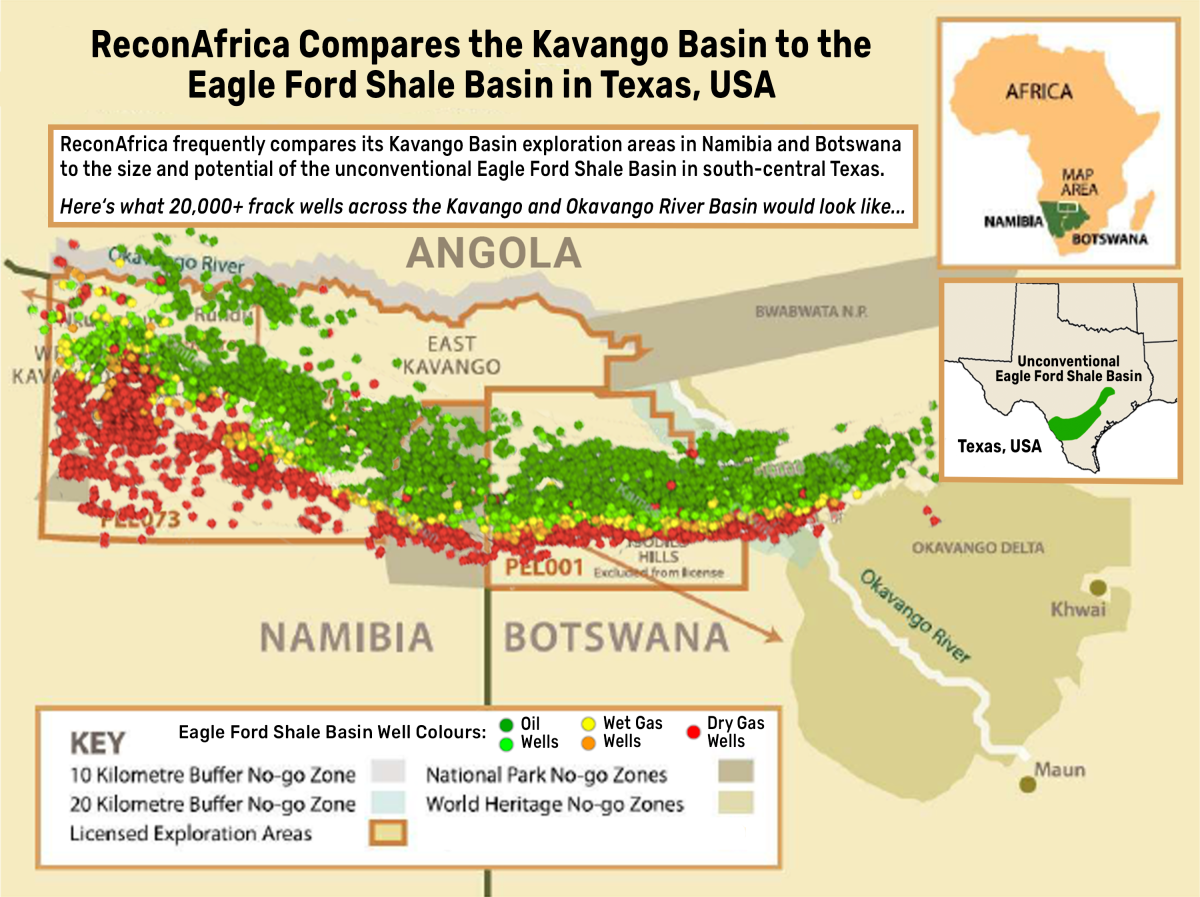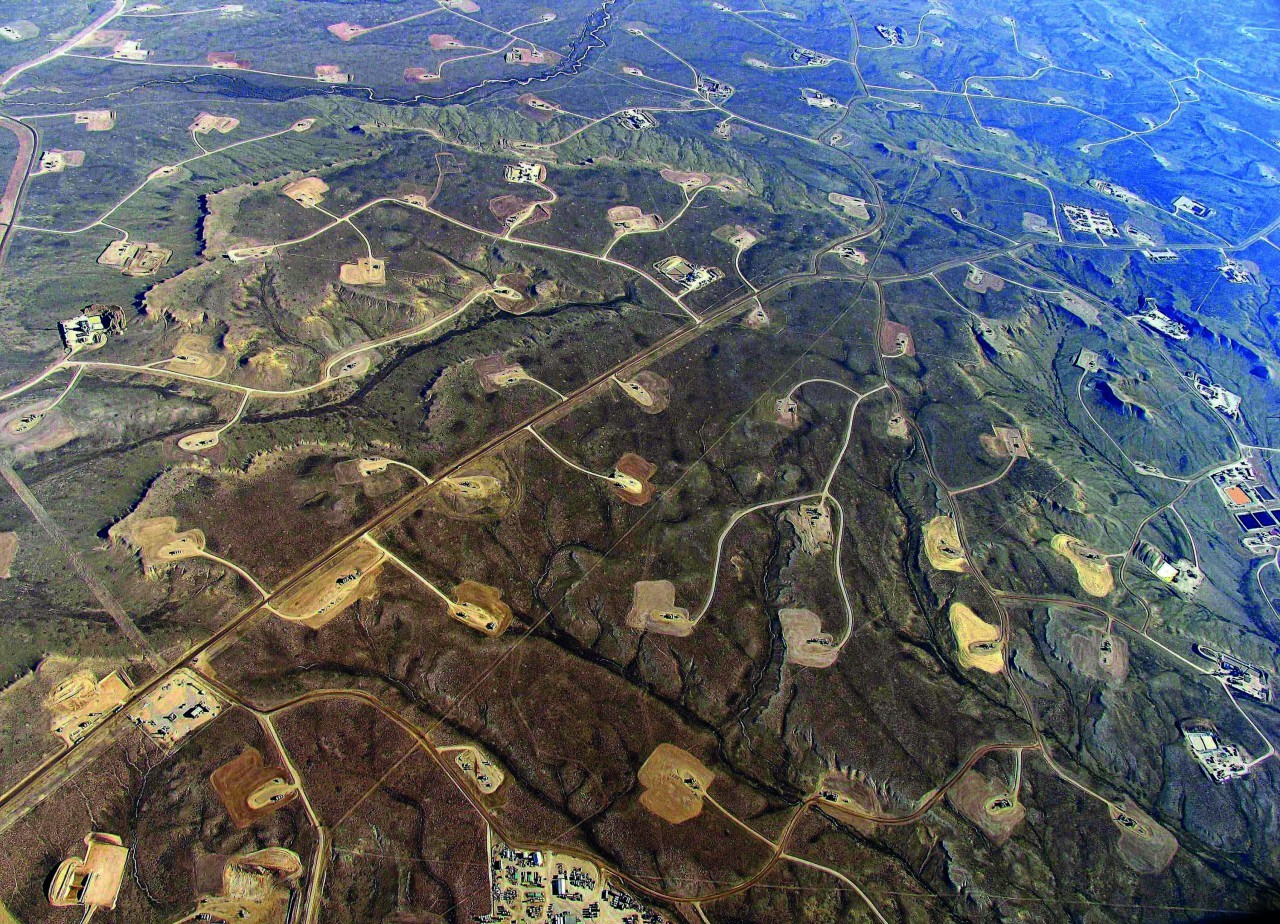The Women's Leadership Centre is grateful to the following donors, who have provided financial and other support for our work.
Call for a Namibian fracking ban
We, Civil Society Organisations in Namibia, together with regional and international organisations (including UNESCO and IUCN), technical and legal experts, are deeply concerned about oil and gas exploratory drilling activities of ReconAfrica in Namibia. We worry in particular about the foreseeable cumulative impacts of the envisaged production phase of at least 25 years within the world’s largest trans-boundary conservation area (the Kavango Zambezi Transfrontier Conservation Area, KAZA).
We therefore call for the introduction of a nationwide fracking ban in Namibia!
Despite ReconAfrica’s denial: Fracking is at stake – Cumulative impacts of oil/gas development are irreversible
ReconAfrica has constantly and repeatedly highlighted that their main target is possible unconventional shale resources in the Kavango Basin. These resources cannot be extracted without making use of the controversial fracking technique. The company has even hired –amongst other shale experts – the “father of modern-day fracking”, Nick Steinsberger. ReconAfrica now denies that fracking will play a role in the extraction of the targeted fossil fuels, yet their PR and marketing materials targeting investors tell a different story.

Composite image of ReconAfrica’s Petroleum Exploration License (PEL) map in Namibia and Botswana, merged (to scale) with the 20,000+ frack wells that comprise the unconventional Eagle Ford Shale Basin in south-central Texas, USA. ReconAfrica compares its Kavango Basin PEL areas as equivalent in size and potential to the unconventional Eagle Ford Shale Basin to investors.
Sources: ReconAfrica & U.S. Energy Information Administration
Fracking: How it functions!
Hydraulic fracturing, or fracking, is a technique employed by the oil and gas industry to extract fossil fuels. Millions of litres of water (from drinking water reservoirs, rivers or lakes), mixed with tons of toxic chemicals and silica sand, are pumped deep underground under extreme pressure to crack oil or gas bearing rocks in order to set free so-called “unconventional” fossil fuel resources.
Fracking: Lasting impacts!
More than a decade of large-scale use of fracking has shown how harmful and destructive this extraction process can be, as confirmed and acknowledged by countless peer-reviewed scientific studies. There are numerous proven risks and impacts, such as heavy freshwater consumption, water and soil contamination, and public health impacts. For example, the impact on pregnant women and their babies includes high-risk pregnancies, infertility, miscarriages, preterm birth, low birth weight, and congenital heart defects. Fracking also contributes significantly to global warming and climate change.
Water use for fracking operations varies depending on the basin and site, but can be on average up to 20 million litres per well. Water use for fracking in major shale gas and oil production regions increased from 2011 to 2016. The Permian Basin in the USA had the largest increase in water use, from 4.9 million litres per well in 2011 up to 42.5 million litres per well in 2016. ReconAfrica frequently compares the Kavango Basin as being equivalent in size and potential to other unconventional frack plays like the Permian Basin in west Texas and the Eagle Ford Shale Basin in south-central Texas. The impact on water resources in the two Kavango regions and the Okavango Delta will be significant if ReconAfrica is permitted by the government of Namibia to enter the production phase using fracking.

The oil and gas fracking fields in the Green River Basin, Colorado, USA - Is this the future for the Kavango Basin? | © Bruce Gordon, Ecoflight
Fracking impacts human rights and contributes to global warming!
After four years of evidence gathering, the judges of the Permanent Peoples Tribunal (PPT) on Human Rights, Fracking and Climate Change concluded in 2018 that fracking contributes substantially to global warming and involves massive violations of human rights. In the final Advisory Opinion, the PPT recommended that “fracking should be banned worldwide”. This call for action is echoed elsewhere by UN institutions (such as the Committee on the Elimination of Discrimination Against Women and the report of the Special Rapporteur on human rights and the environment entitled “Human rights and the global water crisis”). Many countries around the world have already banned fracking.
Fracking ban required to comply with the Namibian Constitution!
According to Article 95 of the Namibian constitution “the State shall actively promote and maintain the welfare of the people by adopting, inter alia, policies aimed at maintenance of ecosystems, essential ecological processes and biological diversity of Namibia and utilisation of living natural resources on a sustainable basis for the benefit of all Namibians, both present and future”!
To be in line with the constitution, we call for the introduction of a nationwide fracking ban in Namibia!
Published by the Women’s Leadership Centre on behalf of Civil Society Organisations. Email:
When you subscribe to the blog, we will send you an e-mail when there are new updates on the site so you wouldn't miss them.


